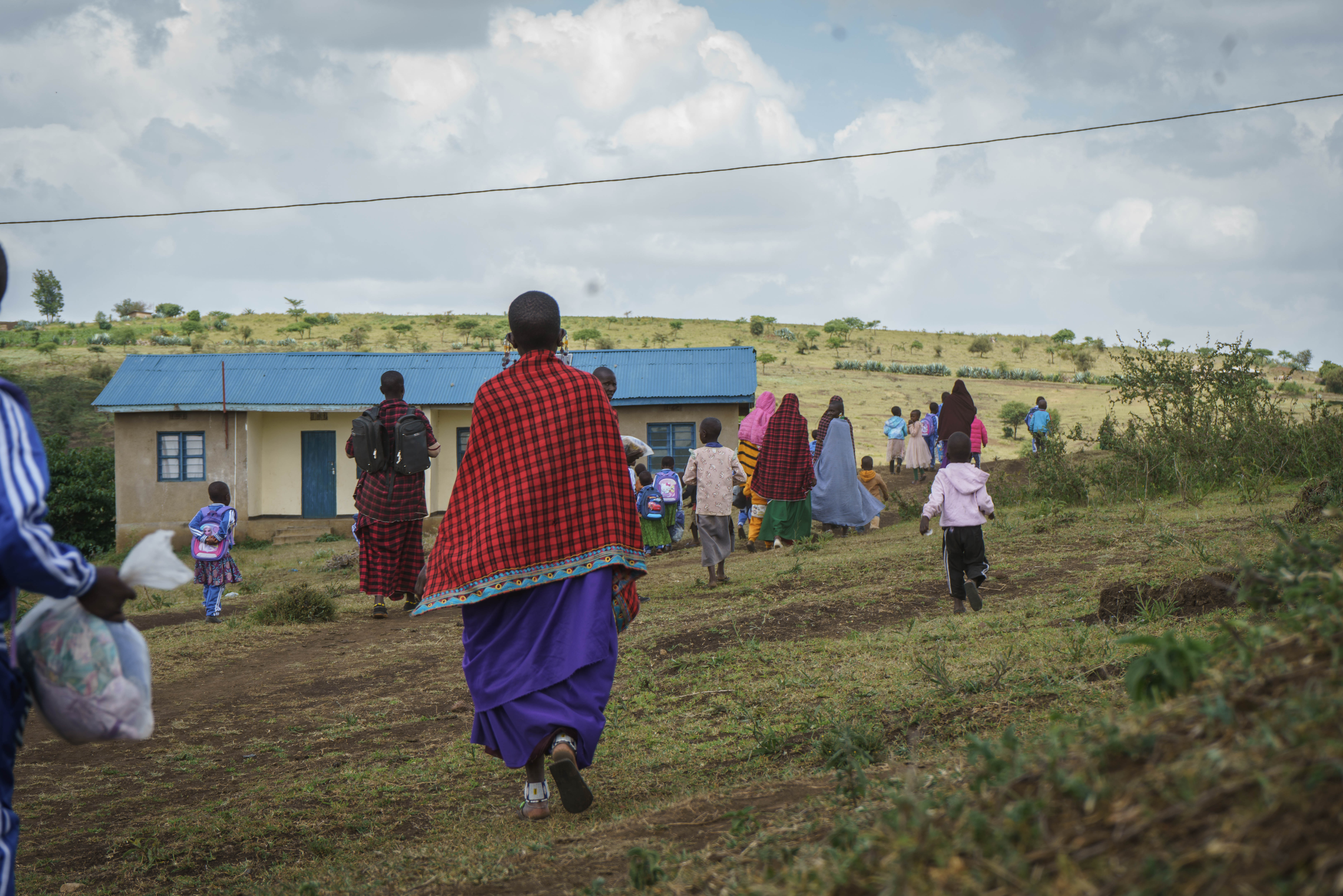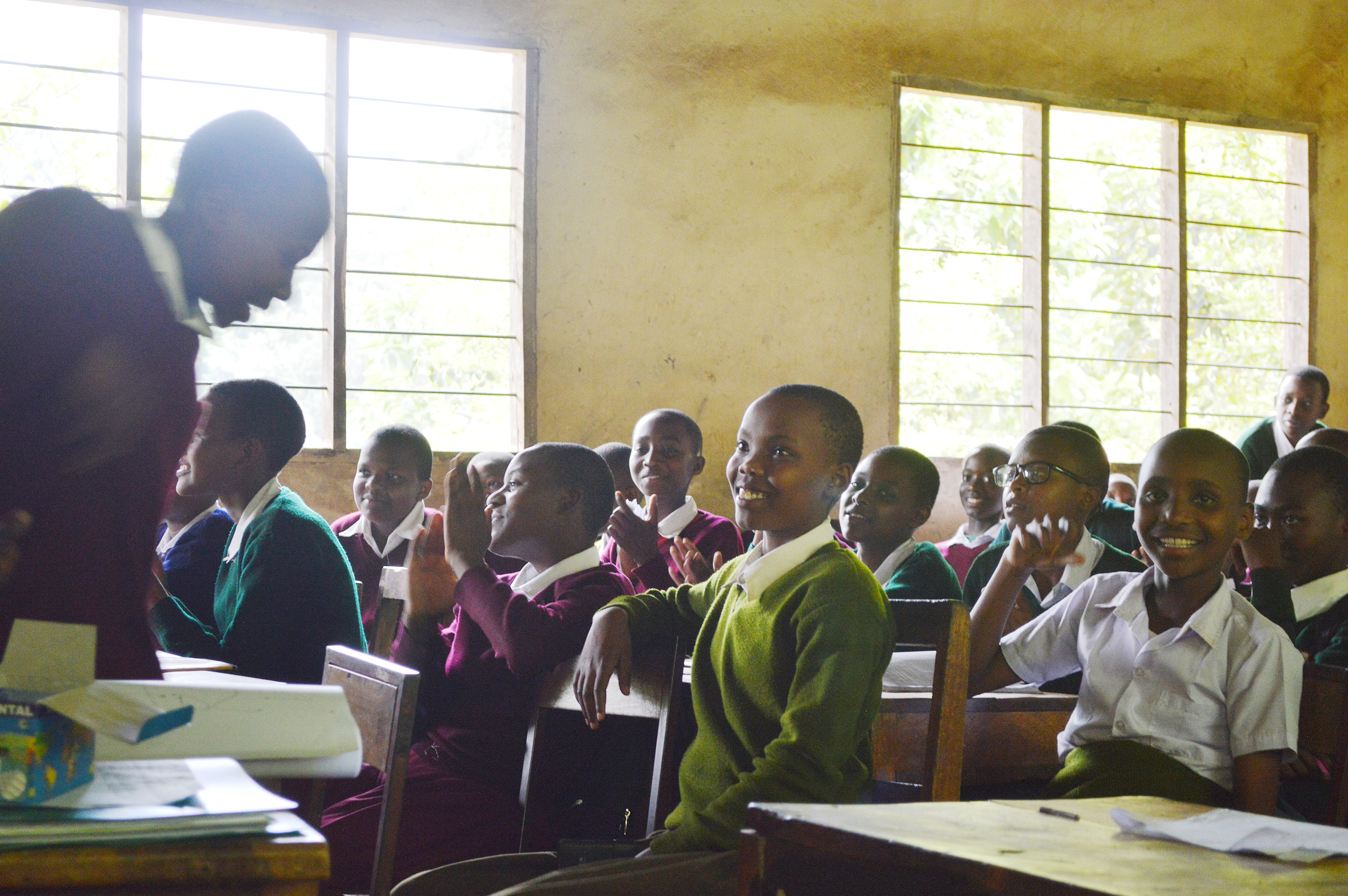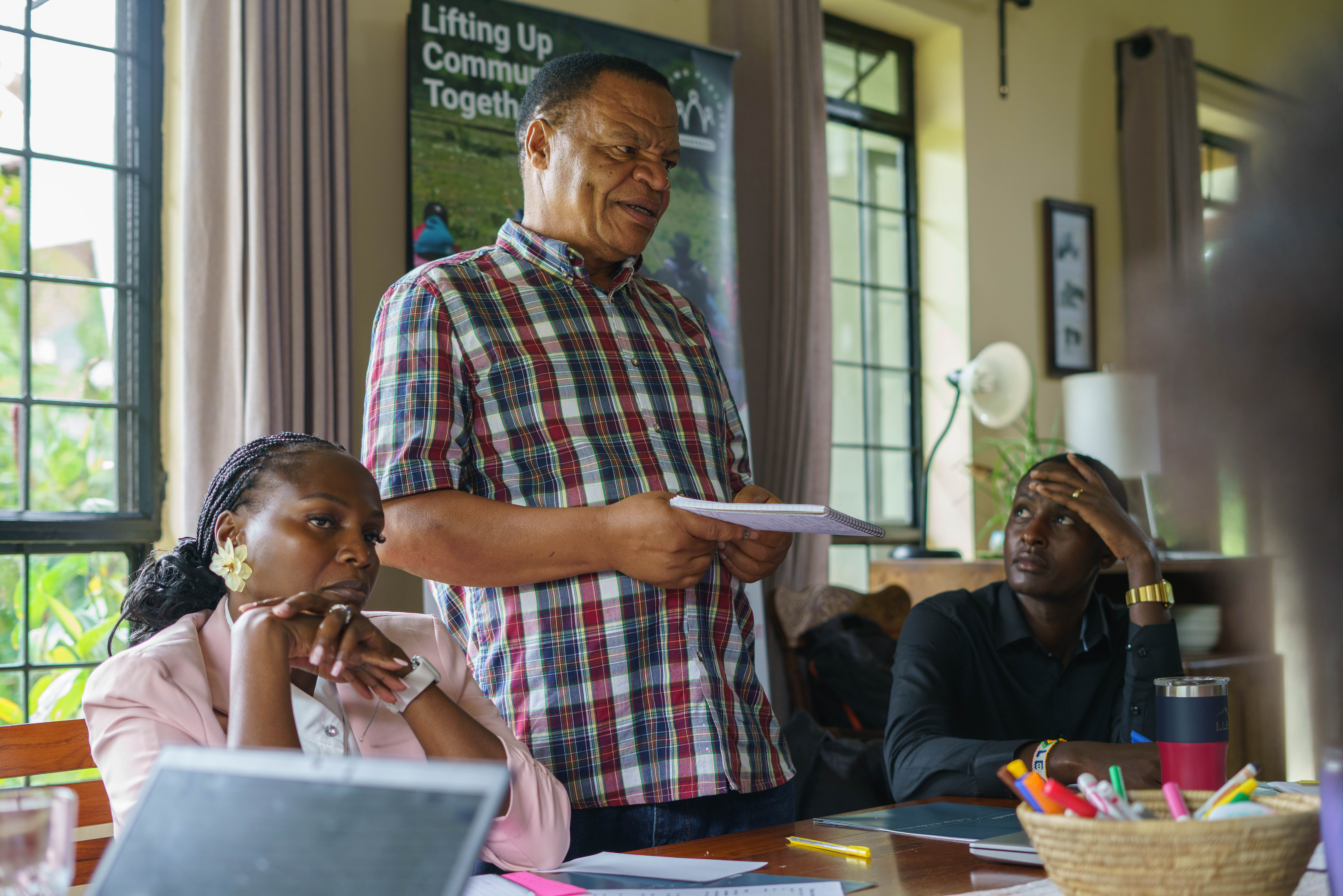
Jun 6, 2025
In Spite of Extreme Weather, Maasai People in Tanzania Prioritize Education Above All
Maasai children and adults in northern Tanzania. Photo by Daniel Tumaini and courtesy of Natopiwo.
After years of informal connections and shared passion for creating safe schools in Tanzania, Friends of Mwangaza (FOM) and Lutheran Partners in Global Ministry (LPGM) are coming together to ask for your support.
Since 1995, LPGM has been working - and walking - with global partners to provide access to quality education for people at the margins, especially women and girls. LPGM currently works with global partners in the Central African Republic, Guatemala, India, and Tanzania and leads transformational travel experiences to build global connections.
Mwangaza Education for Partnership is a grassroots non-governmental organization (NGO) with Lutheran beginnings. Since 1996, it has partnered with secondary schools and communities in Tanzania to create safe learning environments, primarily through teacher training, community education, and Peace Clubs.
Safe and nurturing learning environments are more important than ever in Tanzania.
At LPGM’s board retreat in April, we heard powerful findings from FOM board member Dr. Laura Wangsness Willemsen. Laura and her research partner Musa Kamaika recently completed a sixmonth ethnography project through Fulbright. There were 150 participants from four school communities in northern Tanzania. All of these schools are served by Mwangaza.
They found that extreme, recurring natural disasters are having a widespread and intense impact on the natural world and social world. 147 out of 150 research participants agreed that extreme weather is harder on girls and women. Laura and Musa also found that school is harder due to extreme weather.

Girls like Naitoti are especially negatively impacted by
extreme weather conditions.
Consider Naitoti’s story. Naitoti, a 15-year-old student in Tanzania, loves school, but outside factors always seem to interrupt her learning. During the rainy season, flood waters fill her classroom, causing class to be cancelled. At other times of the year, droughts cause her school to go without water, sometimes for a week at a time. It’s hard to focus when she can’t shower, especially when she’s menstruating.
When crops fail due to flooding and droughts and food is scarce, she tries to focus on her lessons, but she can feel her stomach rumbling during class. She’s also worried about her parents. Her grades are falling.
During her most recent school vacation, Naitoti’s mother Lankenua confided in her that village women, now forced to walk farther to collect water from rivers and wells that haven’t yet dried up, have been getting attacked by animals and sexually assaulted by men.
Naitoti’s father moved to a faraway city last year to look for work and they haven’t heard from him in months. Lankenua, worried about paying her daughter’s school fees, has suggested that Naitoti get married to support the family. Their relationship has become strained, because Lankenua sometimes projects her frustration onto her daughter.
In the face of these daunting odds, Laura and Musa found that people like Naitoti and her mother have hope. During their 150 interviews, they consistently heard that education is hope for the future.
Laura shared, “Every single mother said that education was the most important thing.”
As Tanzanians adapt, innovate, and take care of each other in the face of climate challenges, Mwangaza is uniquely equipped to provide support at the student, teacher, and parent level.
Mwangaza believes all violence is a tragic expression of unmet needs. They also believe that safety is essential for learning.

Mwangaza Senior Program Coordinator John Kavishe participates in a
Collaboration on Climate and Culture in Maasailand Workshop hosted by
Musa Kamaika. Photo by Daniel Tumaini and courtesy of Natopiwo.
Through its Safe School Initiative, Mwangaza works hand-in-hand with 600+ teachers, 500+ parents, 10,500 students and 20+ administrators, in 13 secondary schools across five Tanzanian school districts.
On top of the challenges raised by recurring natural disasters, Mwangaza staff face deeply-entrenched schooling methods that date back to colonial rule. A legacy of corporal punishment, and a rigid power structure between teacher and student, takes time and effort to transform.
Through student Peace Clubs, teacher seminars, and parent workshops, Mwangaza works towards their goal of seeing schools use child protection policies, nonviolent communication, alternative discipline practices, and healthy relationships to ensure dignity and learning for all.
Naitoti attends one of the secondary schools where Mwangaza works. She joined the Peace Club, where she’s been learning to express her anger, adopt a growth mindset, resolve conflicts, and listen with empathy. She is hoping to take these skills to support her mom and to practice non-violence in their relationship.
Mwangaza has trained all her teachers, so she doesn’t have to worry about getting caned at school. When one of her teachers noticed that Naitoti didn’t have school supplies, she gently and privately talked to her after class. This teacher has become a mentor, regularly encouraging Naitoti to stay in school and to work hard and providing Naitoti with extra food and supplies when she is able.
The teacher also invited Lankenua to a parent’s seminar, where she learned about nonviolent communication and healthy relationships. She is planning on trying these techniques when Naitoti is next at home.
At the LPGM board retreat, Laura shared, “As a researcher, I can say that Mwangaza is transformational.” When talking about innovative responses to natural disasters in Tanzania, Laura explained, “Transformation is collective and rooted in love. Love for the land, love for each other, love for being Maasai.”
The same can be said for Mwangaza’s work. Mwangaza has accomplished so much over the past almost 30 years through its commitment to dignity and learning for all, but new and worsening challenges caused by extreme weather require new approaches and more resources.
When you support Mwangaza, you are part of something bigger than yourself.
You are investing in a transformational community-centered approach that promotes non-violence, enhances education quality, increases climate resilience, and provides hope to students like Naitoti.
Lutheran Partners in Global Ministry is a 501(c)(3) organization.
Your contribution is tax-deductible to the fullest extent allowed by law.
Federal Tax ID #41-1818525






